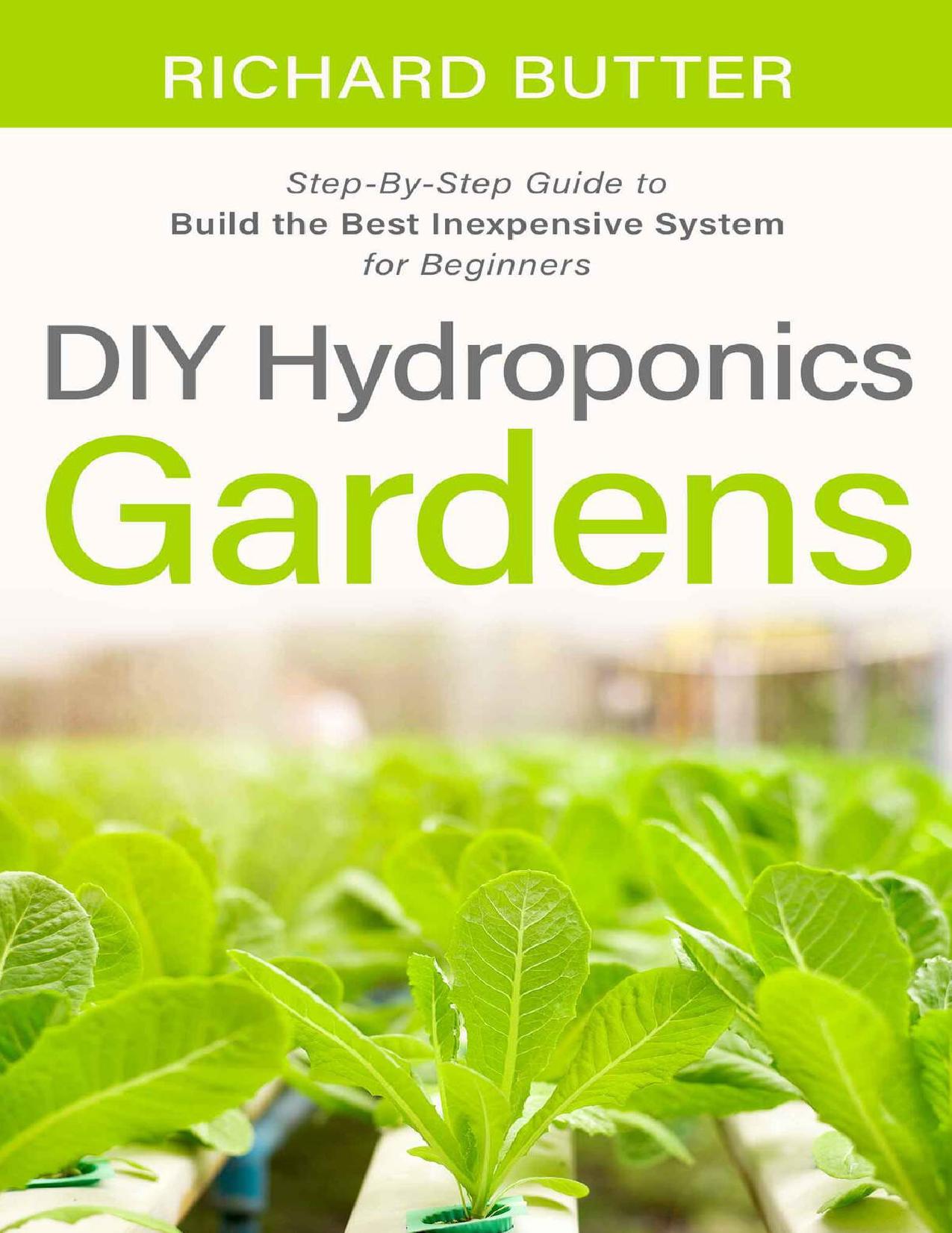DIY Hydroponics Gardens: Step-By-Step Guide to Build the Best Inexpensive System for Beginners by Zoe Rouge

Author:Zoe Rouge [Rouge, Zoe]
Language: eng
Format: azw3, pdf
Published: 2020-07-26T16:00:00+00:00
Primary Macronutrients
Nitrogen (N)
The next most abundant element plants need is nitrogen (N), which is part of nucleic acids and proteins. It is also used in the synthesis of certain vitamins. Without a doubt, nitrogen is among the most important elements of all the nutrients and is mainly responsible for the vegetative growth of plants, their stems, leaves, and colors. Nitrogen is also needed in the formation of chlorophyll and amino acids, as well as of coenzymes and proteins for new cell walls.
Growers would use much nitrogen during the growth periods of the plants before they begin flowering and bearing fruits. Since plants require nitrogen at a rapid rate at some periods, nitrogen is used as one of the major elements in hydroponic solutions.
You will know that plants lack nitrogen when the leaves start to turn yellow. The effect will start showing in older leaves first, especially the lower ones. When there is an excess of nitrogen, you won’t easily recognize the symptoms because the plants will actually look vibrant. However, the ability of the plant to bear flowers and fruits will be impeded since the energy is spent mostly on producing foliage.
Phosphorus (P)
Phosphorus is necessary for the synthesization of nucleic acids and phospholipids. As part of Adenosine triphosphate (ATP), it promotes oxidative phosphorylation that enables the conversion of food energy into chemical energy. It is during photophosphorylation in photosynthesis that light energy is converted into chemical energy, and it is only made possible with the presence of phosphorus.
Phosphorus is just as vital for plants as nitrogen since it is the essential component of a plant’s DNA, and plays a crucial role in tissue formation and cell division. That said, phosphorus is critical for the development of a plant’s roots, flowers, fruits, and seeds.
Phosphorus is essential during the entire life cycle of the plant, although it is particularly needed in adequate amounts during the early phase of germination, as well as during the flowering stage. You can easily tell that a plant is deficient of this element because its growth is stunted, which means it’s shorter than it’s supposed to be with its roots, leaves, and flowers showing abnormalities.
On the other hand, too much phosphorus is also bad for the plants because it will prevent the proper absorption of other elements like iron, calcium, copper, magnesium, and zinc.
Potassium (K)
Potassium is another indispensable nutrient required for plants to grow and thrive. Plants require this element in large amounts for proper development and reproduction. Unlike other nutrients, potassium does not contribute in the formation of compounds in plants, although it functions just as importantly.
For instance, potassium is required during photosynthesis, as it helps promote the process. It’s also important in the formation of starch, as well as enzyme activation and protein synthesis. It’s easy to spot plants that lack potassium because their leaves turn yellow. On the other hand, when there’s an excessive amount of this nutrient, it will be difficult for plants to properly utilize other nutrients like iron, magnesium, and zinc.
Download
DIY Hydroponics Gardens: Step-By-Step Guide to Build the Best Inexpensive System for Beginners by Zoe Rouge.pdf
This site does not store any files on its server. We only index and link to content provided by other sites. Please contact the content providers to delete copyright contents if any and email us, we'll remove relevant links or contents immediately.
Turbulence by E. J. Noyes(8040)
The Thirst by Nesbo Jo(6932)
Gerald's Game by Stephen King(4642)
Be in a Treehouse by Pete Nelson(4034)
Marijuana Grower's Handbook by Ed Rosenthal(3677)
The Sprouting Book by Ann Wigmore(3587)
The Red Files by Lee Winter(3411)
The Remains of the Day by Kazuo Ishiguro(3395)
Sharp Objects: A Novel by Gillian Flynn(3005)
Christian (The Protectors Book 1) by L. Ann Marie(2689)
Organic Mushroom Farming and Mycoremediation by Tradd Cotter(2689)
The Culinary Herbal by Susan Belsinger(2477)
Stone Building by Kevin Gardner(2391)
The Starter Garden Handbook by Alice Mary Alvrez(2335)
Lilac Girls by Martha Hall Kelly(2299)
The Unlikely Pilgrimage of Harold Fry by Rachel Joyce(2269)
The Lean Farm Guide to Growing Vegetables: More In-Depth Lean Techniques for Efficient Organic Production by Ben Hartman(2135)
Urban Farming by Thomas Fox(2101)
Backyard Woodland by Josh VanBrakle(1924)
